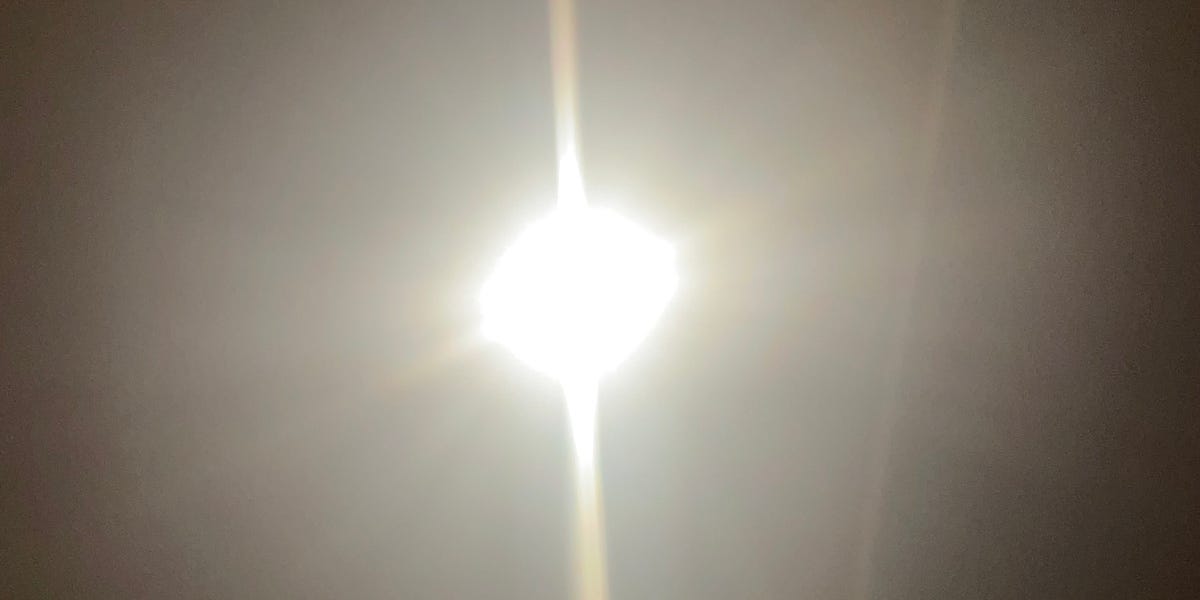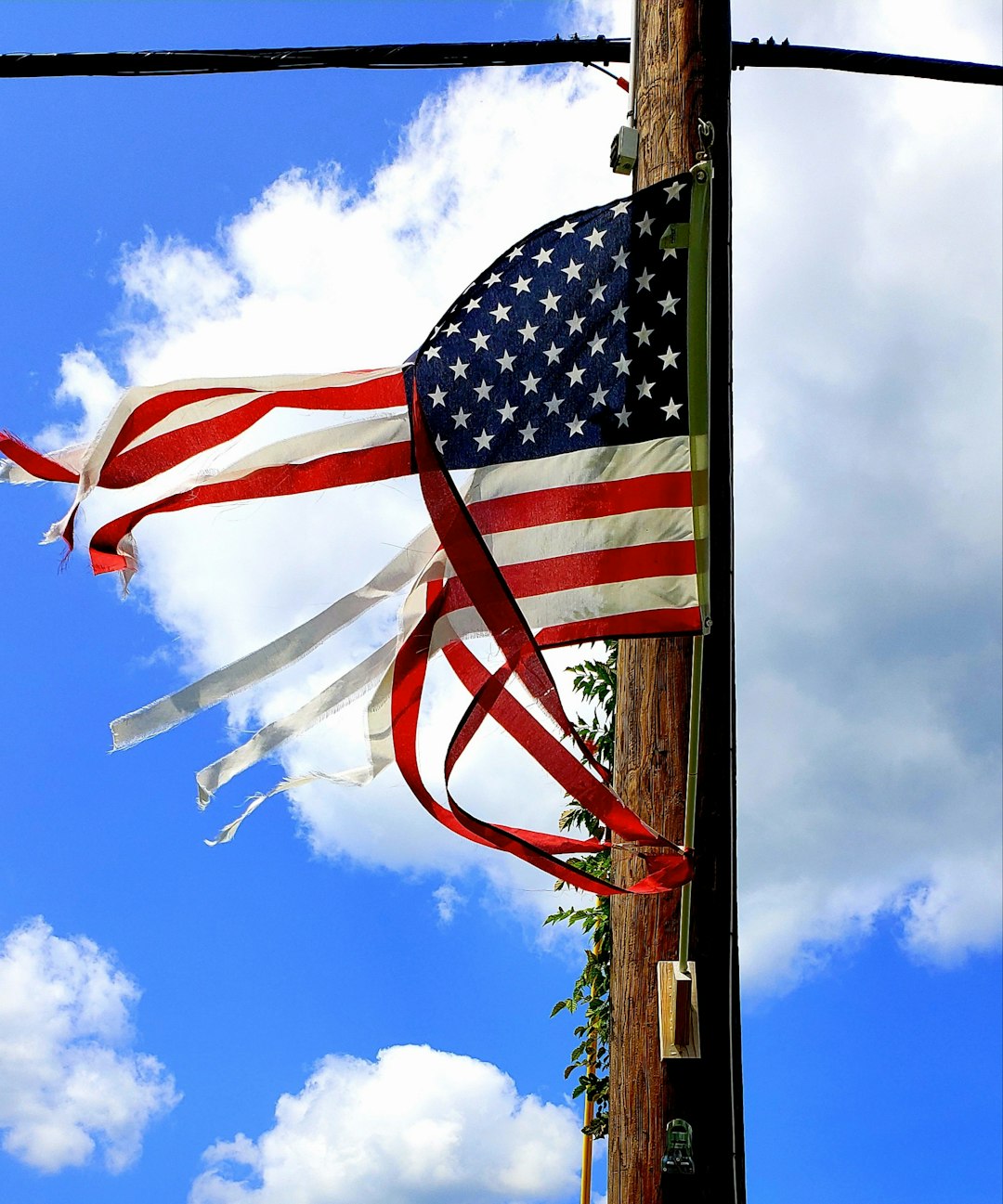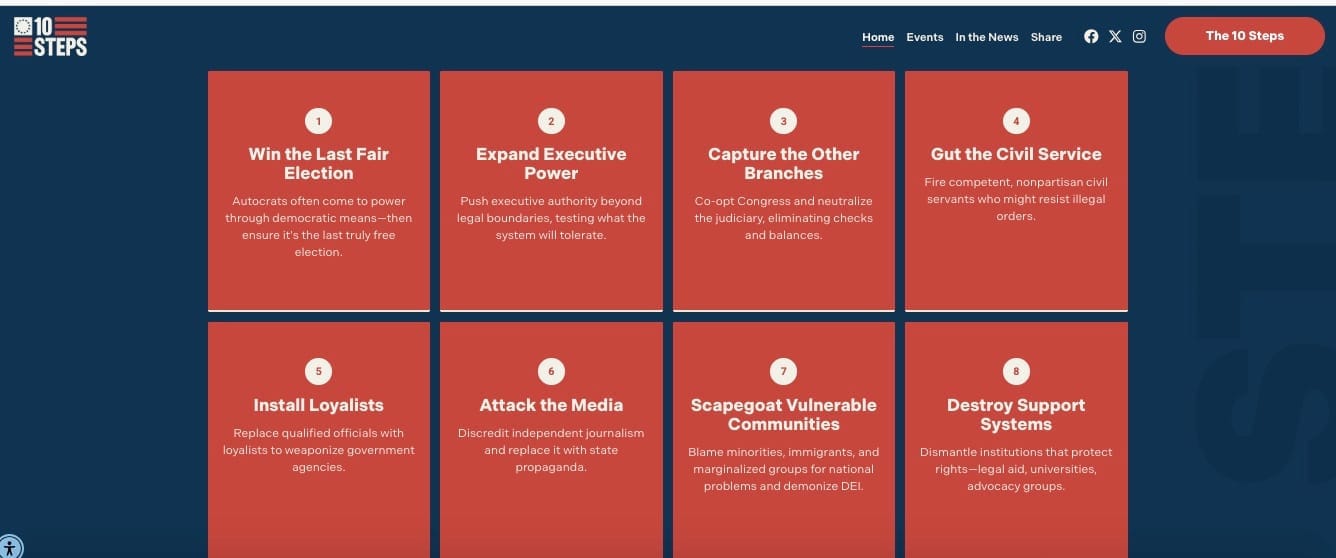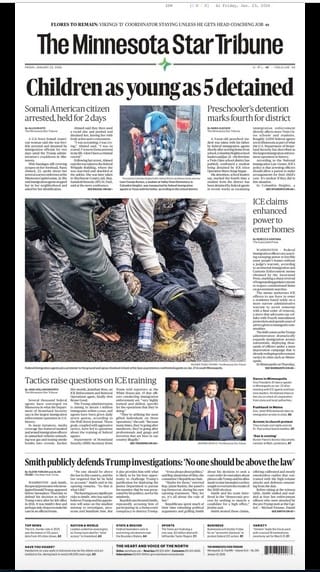Waking up: Will We Simply Roll Over or Will We Rise Up?

The chaos machine spun out so rapidly this week, I gave up on trying to read books to understand what's going on. Searching for in-depth news analysis, I ran across way too many videos in which people—especially women—were being assaulted by uniformed men. And when I say assaulted, I mean grabbed bodily, picked up, literally thrown through the air into walls, hurled onto the pavement, tear-gassed, and shot at close range with "less lethal" weapons. One was even followed as she retreated from the scene of a detention center protest, jumped from behind, and put into chokehold. You can find out more about some of those events here:

We've seen protestors in the United States face many such brutal attacks from law enforcement in recent years, from the Occupy Movement, to Native Water Protectors, to Black Lives Matter, to the campus protests over Palestine. This isn't new. But it does feel as though certain political trends are culminating in this moment. This extreme performance of violence is meant to broadcast to all, not simply activists, that the same is coming for anyone who doesn't knuckle under.
"Effective resistance means we are required to shed our reflexive acceptance of bad politicians doing bad things by excusing them because “they won fair and square.” A free and fair election is not a hall pass to tyranny." Stacey Abrams, Assembly Notes
This is a tyrant's display of the crackdown everyone can expect if we stand up, speak out, or even write a critical letter to the editor. What are the chances it—along with all the threats, firings, and lawsuits—will work to silence dissent? That's a hard question to answer, and remains to be seen as events unfold. But to help us better understand our current moment, I'm sharing a selection of what I'm seeing from historians, writers, and political commentators. Drawing on their expertise, previous research, professional experiences, and historical knowledge, these individuals offer insights and warnings, place current events into larger contexts, and provide suggestions for taking action.
Some find the recent public response to the Jimmy Kimmel incident encouraging. Others advise us against lapsing into passivity because we think other people will do the heavy lifting for us. Still others are raising alarms about the daily onslaught of new illegal acts and orders, alerting us to fresh examples of dangerous political corruption and overreach.
In her September 23rd talk on Youtube, Heather Cox Richardson seemed to feel that "tides are turning."
"It feels to me like things are different now than they were 10 days ago," she says, "and that the American people are really paying attention now to what Trump and his loyalists are doing and they are no longer giving those things the benefit of the doubt, which you know people usually do at the beginning of an administration . . ."
The U.S. is large and diverse; it can be difficult to get a handle on exactly what the level and nature of the public's attention is. Even if we look at polling data. It is often hard to tell what our own friends and neighbors actually know about what is happening here.
Stacey Abrams describes an example of this in "Assembly Notes":
"While some of us may be immersed in the threats we face, for millions of others, the reality hasn’t quite broken through. [...] Last week, I spent time with a naturalized citizen who had escaped a South American dictatorship decades before. We’d worked together many times, so I knew a bit of her story. When I asked about how she felt given what was happening in America, she shrugged.
“I don’t watch the news. It’s too depressing,” she admitted. “What’s going on?”
I spent the next few minutes updating her on the immigration ruling that authorizes racial profiling and the pending cuts to the Affordable Care Act. She is an independent contractor who gets her healthcare on the Marketplace, and she has two children who could be targeted by ICE, despite their citizenship. She had no idea…"
With so many getting their news from a such a variety of (often highly partisan) sources, or avoiding any news at all, there's a good chance that large portions of "we the people" are sleepwalking through this period. To their own potential detriment, as this woman's case illustrates.
Plus, there's simply too much to keep up with. I think this is why people like Timothy Snyder feel the need to call out the dangers so urgently. In his audio-recording, "Trump's Terror Memo," Snyder describes yesterday's Executive Order as the "targeting of a phantom," which "allows governments to target everybody." He points out that inventing an imaginary "entity" comprised of "left wing terrorists," enables the government to actually go after "groups that are concerned with things like counting the votes, human rights, freedom of speech, and the rule of law . . . groups that will . . . be targeted, already are being targeted."
This Has Been Done Before
Snyder ends his short audio message saying "Commentators have a role to clearly describe what is going on. Citizens have a role . . . we all have a role. This has been done before. It can be stopped."


The Stacey Abrams piece below goes into more depth on just how this "has been done before" by authoritarian governments. She includes a discussion with Rachel Maddow about Trump's first 100 days. Maddow also talks about her recent book, Prequel, which covers many of these same issues in our history. When it feels like the ship of state is being rapidly stripped for parts, it can help to know that clear-eyed people are tracking the criminal process and bringing it to public attention. That's the first step in making sure it is stopped.

Andrea Pitzer, author of One Long Night: A Global History of Concentration Camps, has two recent pieces well-worth looking at. These also address the roles of commentators and citizens. In "Why Speaking Out Matters," she describes why it is important to "virtue signal." This phrase is typically a criticism, aimed at those suspected of using language solely to enhance their image.
But Pitzer gives it a new, oppositional meaning in the present context. In the face of "the government's own vice signaling," too many institutions are responding by "obeying in advance." In this sense, virtue signaling has potential as a corrective. Without it, "the fewer the people who stand for a principle, the easier it is to eat away at its edges." Therefore, "we have to virtue signal, to show up in community meetings and on the streets, to create a wall of virtue signaling that puts social and political pressure on everyone from local mayors to ICE agents and National Guard members around the country, as well as national leaders."
As examples of speaking out, Pitzer considers the case of the "Sandwich Guy," the press conference by Epstein abuse survivors, and the "We Are All DC" march. Her show notes distill her point: "Andrea talks about the role of everyday people in establishing ethical norms for the country. It's possible to use virtue signalling as a spur to action and set an agenda for a new and true American democracy."
See the article on which this video is based here: https://degenerateart.beehiiv.com/p/what-do-you-stand-for
What's Going On Versus What To Do
Next, Pitzer addresses the ever-present question of whether news commentary will have the intended effect. In "Kill This Podcast," Pitzer asks:
"What if my telling you there's still time to save democracy keeps you from thinking you need to act now?"
Essay version on which this video is based, here: https://degenerateart.beehiiv.com/p/mind-the-gap
In this installment, Pitzer recaps the week's events. She examines what kind of stand or messaging we need to see from politicians and other leaders for our situation to improve. She then differentiates between "what's going on versus what to do." Pitzer notes, "being well-informed is important, but its a trap to think that being well-informed by itself will stop any of this nightmare." After some examples of what "stepping up" might look like, she ends with some hope, offered by a study called "When Autocritization is Reversed." This research looks at political U-turns in the world during the 1900-2023 period, showing that "some 90% of the U-turns led to greater democratization in the end."
The point is to act fast before the autocrat becomes firmly entrenched. Pitzer asserts that the window of time in which to take effective action is narrowing. We can't wait around for someone else to save us.
The Ten Steps site, referenced by Stacey Abrams, can provide a helpful framework for understanding what's going on and resources for what to do. If you are at a loss for what your personal role may be, this site may be a good place to start.









